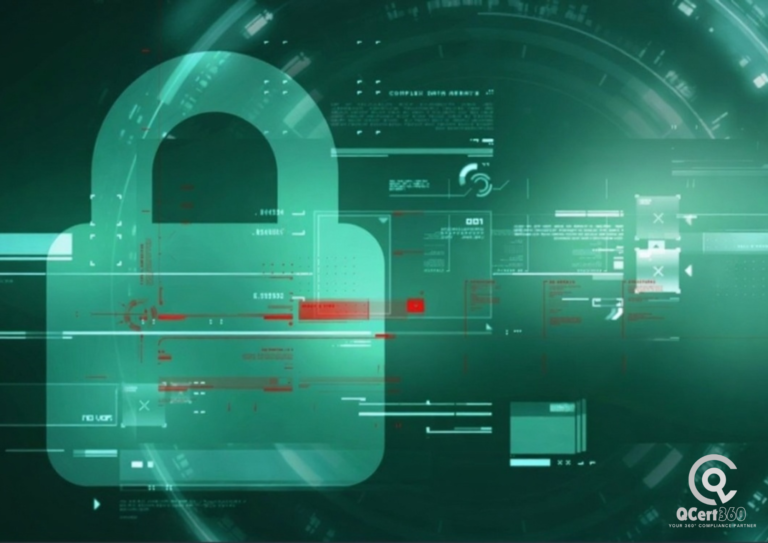
Let’s be honest—cyber threats aren’t slowing down. Whether you’re running a fintech startup in the UAE, a SaaS company in Singapore, or a data-driven enterprise in Europe, the security of your information systems isn’t optional anymore. It’s a deal-breaker.
Here’s the thing: you could chase individual security policies or tools, but that’s like patching leaks in a boat one at a time. Instead, an integrated cybersecurity framework—built on ISO 27001, 27701, 27017, and 27018—gives you a full shield. When used together, these standards don’t just protect your data—they help you build trust, meet international regulations, and run more efficiently.
Why Global Certifications is the New Passport for Global Trade
Buyers don’t just care about your product — they care about your systems. Can you prove your goods are safe, consistent, and compliant with international expectations? That’s where certification steps in.
Whether it’s ISO certification for international trade, GMP certification for African pharma exporters, or CE certification for global market entry, third-party endorsements open doors. They reduce buyer risk. They speed up customs. And they often serve as a mandatory filter in government and retail tenders.
Take this scenario: a cosmetics manufacturer in Nigeria wants to expand sales to Carrefour in the UAE. Carrefour requires GMP and ISO 22716 documentation before they even evaluate the product. No certificate, no listing — no matter how good the cream is.
The Building Blocks: What Each Standard Brings to the Table
- ISO 27001 is your foundation. It’s the global benchmark for an Information Security Management System (ISMS). It identifies risks, controls them, and helps your organization build a culture around protecting data.
- ISO 27701 extends 27001 to cover privacy. Think of it as your GDPR compliance translator. It covers how personal data is collected, processed, and stored, helping businesses meet global privacy regulations.
- ISO 27017 focuses on cloud service security. If you’re hosting customer data or offering services through the cloud, these standard plugs specific security gaps related to cloud infrastructure.
- ISO 27018 handles personally identifiable information (PII) in the cloud. If you’re managing user data in Europe, Asia, or the Middle East, this is your go-to for regulatory alignment and protection.
On their own, each of these certifications is powerful. But when you combine them, they form a digital security stack that’s adaptable, scalable, and credible.
Real-World Case Study: A SaaS Startup in Dubai
Let’s look at Novabyte, a 40-person SaaS company based in Dubai that builds B2B solutions for healthcare and education. In 2022, they hit a wall.
- A hospital client in Germany asked for proof of ISO 27018 compliance for data privacy in Europe.
- A UAE-based partner required cybersecurity certification for tech startups in UAE as part of a new government tender.
- Meanwhile, their CTO was trying to prep for cloud audits and realized their systems had no unified policy around PII or cloud-specific controls.
They contacted Qcert360 to help cut through the confusion.
Rather than pursuing four separate projects, Qcert360 proposed an integrated route—one framework, one audit cycle, and coordinated documentation for ISO 27001 and 27701 combined certifications, alongside 27017 and 27018.
The result?
- They completed implementation in 5 months
- Passed their first audit on the first try
- Secured 3 new international clients in 60 days
- Reduced vendor onboarding delays by 40%
- Their engineers even said onboarding new tools was easier due to the ISO 27001 27017 27018 integration checklist that became part of internal SOPs.
Their story is one of many. Startups, especially those targeting high-trust sectors like fintech, eHealth, or eGov, increasingly need to prove their cybersecurity and privacy posture. Integration isn’t just a buzzword here—it’s a smart business decision.
Why Integrate Instead of Going One-by-One?
- Cost-Efficiency
Instead of paying for four different audits and consultants, combining them under one umbrella saves money—especially for startups and mid-sized companies. Fewer audits mean fewer disruptions and lower administrative overheads.
- Streamlined Documentation
Policies, procedures, risk assessments—these often overlap. Integration eliminates redundancy. You won’t have to write and maintain four sets of security policies when one unified set can meet multiple standards.
- One Management System
A single ISMS based on ISO 27001 becomes your hub. From there, privacy (27701), cloud (27017), and PII handling (27018) plug right in. This results in better consistency, faster implementation, and simpler internal training.
- Regulatory Alignment
If you’re navigating both GDPR vs ISO 27701 compliance framework decisions and local laws in the UAE, Singapore, or EU nations, this bundled approach gives you better legal coverage. It also supports compliance with emerging regional laws in Saudi Arabia, Thailand, and South Africa.
- Audit-Ready from Day One
When you implement these standards as a bundle, your audit preparation is streamlined. You reduce confusion, avoid duplicated controls, and make it easier for auditors to see your compliance posture.
How Qcert360 Makes Information security certification Happen
Qcert360 isn’t just a documentation firm. They work side-by-side with your team—whether you’re in Dubai, Singapore, Thailand, Malaysia, Saudi Arabia, or any major data-sensitive market.
Their implementation teams:
- Conduct gap assessments (remotely or on-site)
- Build implementation roadmaps tailored to your business
- Develop tailored SOPs and checklists
- Deliver ISO 27001 lead auditor training Middle East sessions to internal teams
- Provide pre-audit walkthroughs and mock audits
- Align documentation with your actual business workflows
Qcert360’s edge is real-world experience. They’ve helped fintech, government vendors, logistics platforms, and even eCommerce marketplaces secure and certify their digital ecosystems—without dragging the process for months.
Who Benefits the Most from Information security certification?
- Tech startups and scale-ups: Especially those needing fast credibility in regulated markets
- Cloud service providers: Where the risk exposure and client trust depend on strong controls
- Healthcare & EdTech platforms: Managing high volumes of personal and sensitive data
- Exporters & cross-border SaaS companies: Looking to land clients in Europe, the UAE, or Southeast Asia
So, if you’re wondering how to get ISO 27017 certified in Singapore or looking for the best ISO for cloud data security, the answer is: don’t look at them in isolation. Look at how they support each other.
Common Pitfalls to Avoid while obtaining Information security certification
- Copy-paste policies: Generic templates won’t stand up in audits, especially for ISO 27701 and ISO 27018
- Isolated departments: InfoSec can’t sit only with IT—it needs involvement from legal, HR, DevOps, and leadership
- Poor staff training: You can’t protect data with untrained hands. Training and awareness matter more than people realize
- Overengineering: Qcert360 helps companies scale ISO to fit the size and maturity of the business—no unnecessary bureaucracy
- Underestimating internal resistance: Change management is key. Successful ISO adoption depends on getting internal buy-in
Final Thoughts: Security is a Trust Currency
Customers may never read your security policy—but they will judge you if there’s a breach.
By integrating ISO 27001, 27701, 27017, and 27018, you’re not just checking boxes. You’re sending a message: We take your data seriously.
This is no longer a competitive advantage—it’s the new baseline.
Qcert360 helps you get there faster, with less chaos, and more clarity.
If you’re ready to move from reactive security to proactive, integrated assurance—Qcert360 is ready to help.
Let’s make your business not just secure, but certified secure.
FAQs: ISO Cybersecurity Standards Integration
- Do I need all four standards to be compliant?
Not always. But if you handle cloud, personal data, and privacy obligations, the four together give complete coverage. - Can I implement them in phases?
Yes. Start with ISO 27001 and layer the others based on risk and client needs. - Is ISO 27701 mandatory for GDPR?
No, but it’s the closest thing to a structured privacy compliance guide you can audit. - How long does integration take?
With Qcert360, most mid-sized companies finish implementation in 4–6 months. - Is this relevant only for big companies?
Not at all. Startups benefit the most—especially when they need to earn trust fast. - What’s the difference between ISO 27017 and 27018?
27017 focuses on cloud security. 27018 zeroes in on protecting personal data in the cloud. - Can Qcert360 train our team too?
Yes. They offer tailored training for internal auditors, IT teams, and privacy officers. - Is this valid internationally?
Absolutely. These ISO certifications are globally recognized in public and private sectors. - What if we already have ISO 9001 or 22301?
Even better. These standards can be integrated under a unified management system. - How do I get started?
Contact Qcert360. They’ll run a readiness check and map out an implementation plan that fits your business model.


